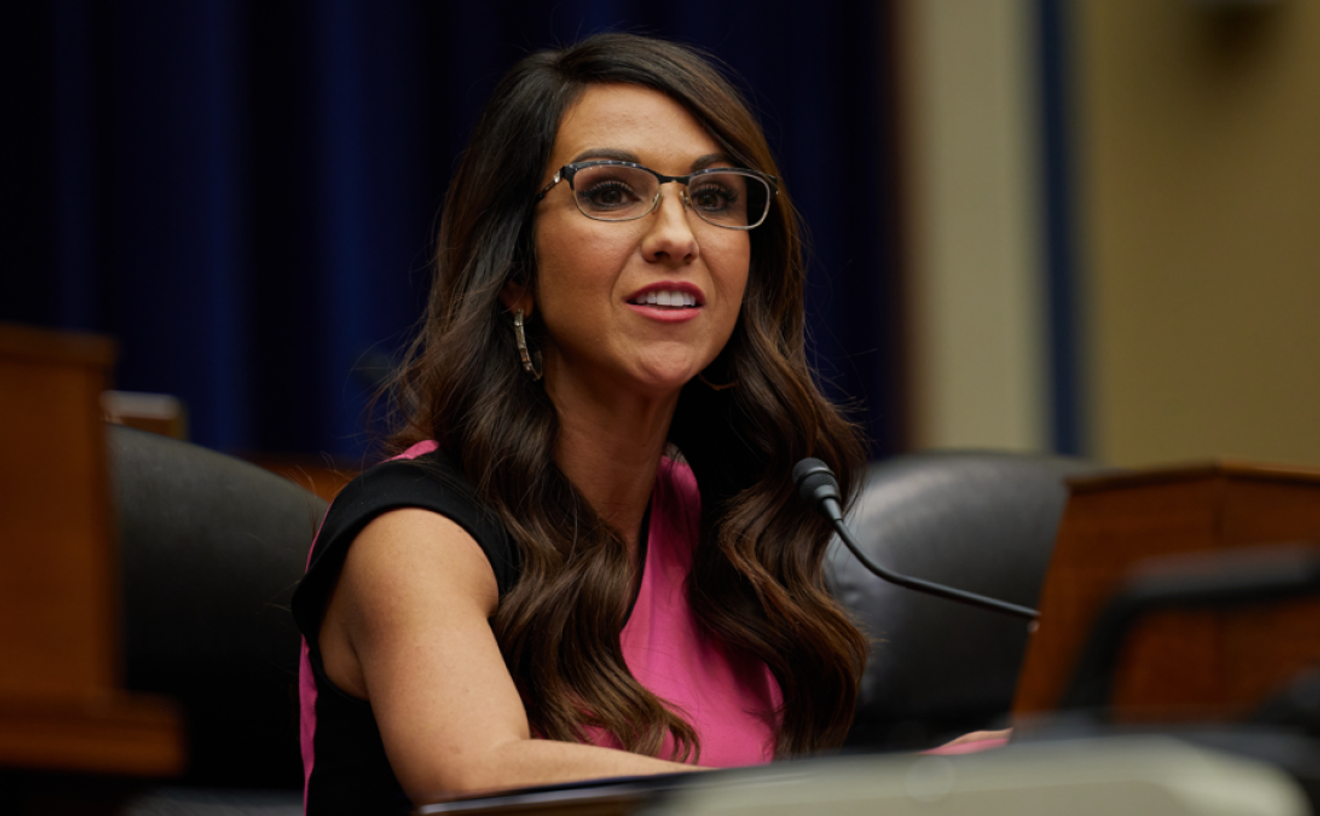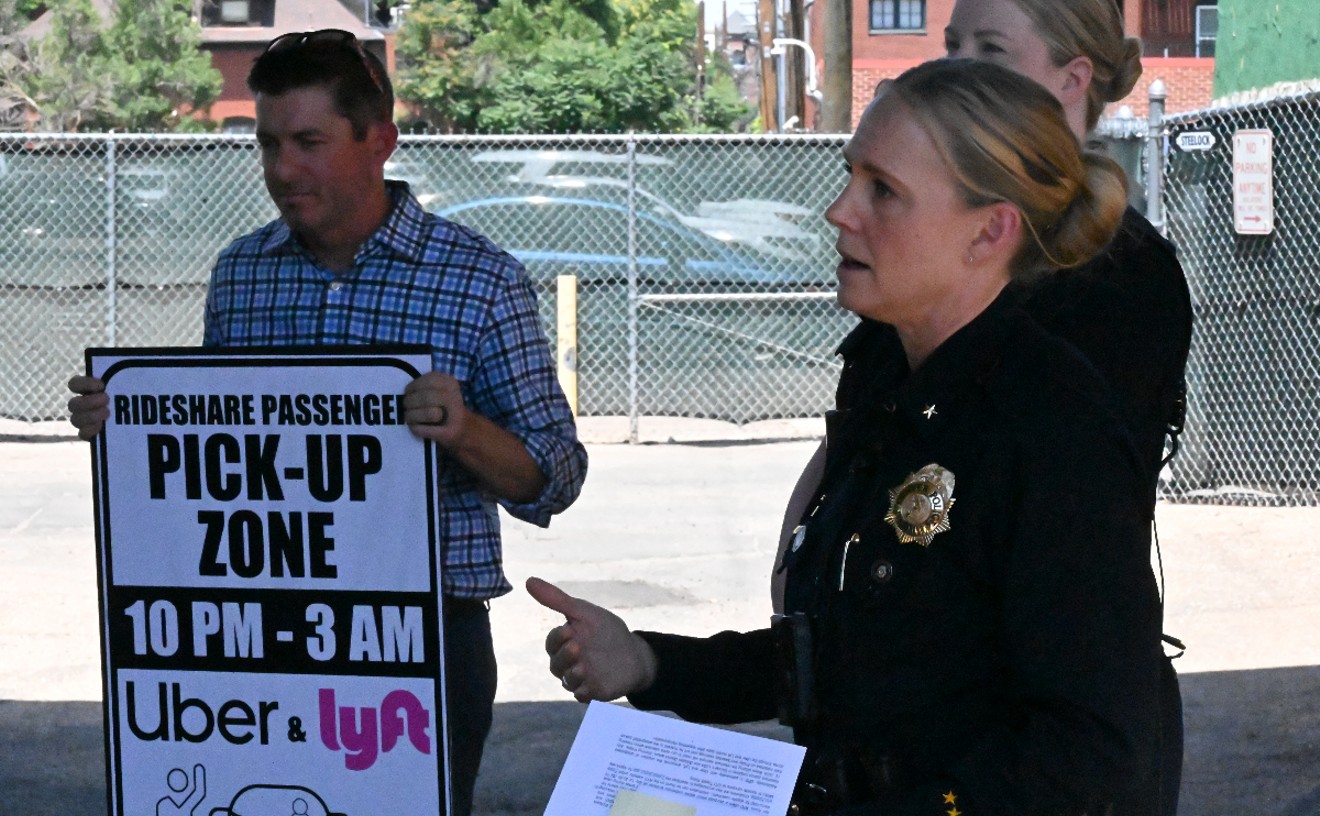More than two weeks after the U.S. Supreme Court’s June 30 ruling in 303 Creative v. Elenis — which held that the First Amendment allows owners of creative businesses to refuse service to same-sex couples because of their religious beliefs — the decision's far-reaching ramifications are still unknown.
“The possibility of being turned away because of who you are is something that Coloradans don't expect to see because of the laws we have,” says State Representative Brianna Titone, Colorado’s first transgender lawmaker. “Without a clear understanding of what a creative enterprise is in the decision, it's ambiguous as to what's going to come next and who's going to respond.”
Web designer Lorie Smith pursued her case in 303 Creative v. Elenis because she did not want to comply with the Colorado Anti-Discrimination Act (CADA), which prohibits businesses open to the public from discriminating based on various characteristics, including sexual orientation.
Smith’s 303 Creative is a wedding website design business, and though she had yet to be asked to make a website for any same-sex couple, in her 2016 lawsuit in U.S. District Court, Smith claimed that Colorado’s anti-discrimination law is unconstitutional. In response, the state argued that the case should be dismissed because there was no actual instance of Smith being asked to express something she didn’t believe, and the court ruled for the state.
Smith and her legal team from Christian-rights law firm Alliance Defending Freedom (ADF) appealed that decision, and the U.S. Court of Appeals for the 10th Circuit agreed with the district court that CADA did not violate the First Amendment — prompting Smith and her attorneys to take her case to the U.S. Supreme Court, which ruled in favor of Smith.
The court didn’t overturn CADA, however; it just carved out an exception for expressive businesses, so now it is up to the state to determine what constitutes an expressive business. At a June 30 press conference held after the decision was announced, Colorado Attorney General Phil Weiser warned that everything from bookstores to payroll companies could try to claim exceptions.
But Jake Warner, senior counsel with the ADF, thinks it’s pretty clear which businesses the decision applies to.
“That line is easily drawn,” he says. “Courts have long decided what is speech and what isn't speech, and they have a test for that, so this decision protects people who engage in speech. For non-expressive goods or services, that falls outside the scope of this decision.”
Still, Titone worries that the case’s ambiguities could put more people at risk.
The case was based on a religious objection to same-sex marriage but could open the door to discrimination against other groups, she notes: “Is it going to filter out into other religious groups? Jewish folks or Muslim people or Sikhs if they have a head wrap on their head? … Will it go to the color of someone's skin?"
It’s not just legal repercussions that concern Titone; she says she's worried about the social effects of the decision.
While she wasn’t surprised by the court’s decision, the reaction from the public — even messages from those trying to be supportive of LGBTQ people by saying they’d rather that homophobes not shop at their businesses — worries her.
“It's creating a big wedge in our society,” Titone says. “That was probably the ultimate goal of this kind of thing to begin with. Did the woman with this business really have the intent of suing, or was she goaded by the Alliance Defending Freedom? Were they really the ones that were just looking for the ripe fruit to pick to start this thing to try to get what they want and create fractures — and then with these fractures, create more lawsuits to create more fractures and create more division?”
Titone cites protests at The Drip Cafe, whose parent company, Recycle God’s Love, includes language on its website declaring, "This organization holds that a homosexual lifestyle is contrary to God’s Word and purpose for humanity and is sin (I Timothy 1:10).” She says that businesses like the Drip may be doing these things to get a reaction or spark a lawsuit like Smith’s.
The 303 Creative case comes along with a wave of anti-LGBTQ+ bills introduced across the country, totaling over 500 in the last legislative session — and it could fuel more. “It's definitely in the realm of possibility,” Titone says. “We'll look to see in January when the state legislatures convene and then they start to put together ways of using these decisions to their advantage.”
According to Smith’s lawyers, there should be no harmful results stemming from the decision. Rather, Warner categorizes it as a victory for all Americans because “no matter whether you agree with Lorie and her view on marriage, this decision protects your right to say what you believe without fear of government punishment.”
He says he believes the ruling upholds freedom of speech for more people.
But Titone points to the American Civil Liberties Union, in particular, which insists that the ruling does not protect freedom of speech.
“The U.S. Supreme Court’s misguided decision today paves the way for businesses offering customized expressive services to violate that state law and discriminate against historically marginalized groups,” said Deborah Richardson, executive director of ACLU of Colorado, in a statement released June 30. “Businesses open to the public must be open to all.”
According to Titone, the ADF isn’t looking to defend freedom for all, but rather freedom for Christians only.
“That's where I really start to have trouble, is that it's one very specific group of people that's trying to get a leg up on people who do not believe in beliefs that they have,” she says. “It's about their freedom of speech for their specific agenda, and that's not what the Supreme Court should be upholding.”
Warner disagrees, saying that he expects the decision can be used as a defense by many people the government tries to force to express messages that go against their beliefs. The ADF is still arguing on behalf of Lakewood’s Jack Phillips — owner of Masterpiece Cakeshop — who wouldn’t bake a cake for a gay couple in 2012. The Supreme Court heard his case in 2018, determining that Colorado had acted in a hostile manner toward Phillips over his beliefs, ruling in his favor in Masterpiece Cakeshop v. the Colorado Civil Rights Commission in 2018.
Now Phillips has reached the Colorado Supreme Court with a case in which he was asked to bake a gender-transition cake. Under his Christian beliefs, Phillips does not believe transgender people are legitimate, so he sued; the ADF has used the 303 Creative ruling in its latest arguments in Phillips’s case.
“We believe that 303 Creative clearly means that the government can't force any artist to promote messages inconsistent with their beliefs, and that includes cake artist Jack Phillips,” Warner says.
Because the Supreme Court didn’t rule on the freedom-of-expression aspect of Phillips’s original case, Smith’s legal battle became necessary, Warner continues. In fact, the Phillips case is what initially led Smith to the ADF.
“Seven years ago now, Lorie looked around and saw what her state was doing to Jack Phillips,” Warner says. "She wondered, ‘Can my state do this to me?’ So she called ADF and requested legal help, and of course we informed her that she was at risk.”
ADF filed a pre-enforcement lawsuit against the state on Smith's behalf, which led to the ultimate Supreme Court decision.
But while these cases keep coming, people should not lose hope, suggests legal scholar and activist Z Williams, who co-runs Bread and Roses Legal Center — which aims to promote social justice in the legal system, including for LGBTQ people.
“Remember that social change is multi-generational work,” Williams says. “Even as hard as it is now, we have generations and generations of ancestors who worked very hard to get us where we're at, and worked very hard to make it so that we have the things that we do have. It's natural that there will be backlash when we start winning.”
Because more people feel safe to come out as gay or trans, the backlash is getting bigger — and response to the 303 Creative case is an example, Williams contends. But the law can’t determine everything, and it shouldn’t.
Instead, Williams points to mutual aid and local allyship as ways to combat what can feel like hopelessness. Projects like Denver’s Mutual Aid Monday and Colorado’s Transformative Freedom Fund work to help people access what they need, be it a meal or gender-affirming health care. For its part, Bread and Roses aids trans people in gathering the documents for legal name changes.
“Ultimately, what we need to realize is that the thing that will make queer and trans people safer is community and collective action,” Williams says. “It's not always going to be through legislative measures or court decisions.”
But if legislation is needed, Titone will be ready to act.
“Colorado will still really try to do whatever we can to make sure that it's an inclusive and safe place,” she says. “We're not going to let this decision create a setback. We're going to keep monitoring and responding as needed to ensure that the citizens of Colorado are safe and free of discrimination.”
[
{
"name": "Air - MediumRectangle - Inline Content - Mobile Display Size",
"component": "12017618",
"insertPoint": "2",
"requiredCountToDisplay": "2",
"watchElement": ".fdn-content-body",
"astAdList": [
{
"adType": "rectangle",
"displayTargets": "mobile"
}
]
},{
"name": "Editor Picks",
"component": "17242653",
"insertPoint": "4",
"requiredCountToDisplay": "1",
"watchElement": ".fdn-content-body",
"astAdList": [
{
"adType": "rectangle",
"displayTargets": "desktop|tablet"
},{
"adType": "rectangle",
"displayTargets": "desktop|tablet|mobile"
}
]
},{
"name": "Inline Links",
"component": "18838239",
"insertPoint": "8th",
"startingPoint": 8,
"requiredCountToDisplay": "7",
"maxInsertions": 25
},{
"name": "Air - MediumRectangle - Combo - Inline Content",
"component": "17261320",
"insertPoint": "8th",
"startingPoint": 8,
"requiredCountToDisplay": "7",
"maxInsertions": 25,
"watchElement": ".fdn-content-body",
"astAdList": [
{
"adType": "rectangle",
"displayTargets": "desktop|tablet"
},{
"adType": "rectangle",
"displayTargets": "desktop|tablet|mobile"
}
]
},{
"name": "Inline Links",
"component": "18838239",
"insertPoint": "8th",
"startingPoint": 12,
"requiredCountToDisplay": "11",
"maxInsertions": 25
},{
"name": "Air - Leaderboard Tower - Combo - Inline Content",
"component": "17261321",
"insertPoint": "8th",
"startingPoint": 12,
"requiredCountToDisplay": "11",
"maxInsertions": 25,
"watchElement": ".fdn-content-body",
"astAdList": [
{
"adType": "leaderboardInlineContent",
"displayTargets": "desktop|tablet"
},{
"adType": "tower",
"displayTargets": "mobile"
}
]
}
]












